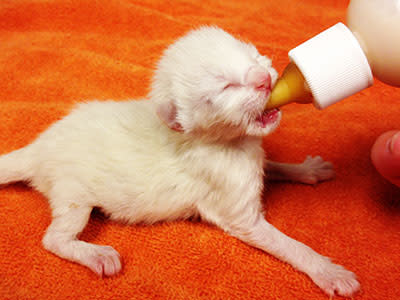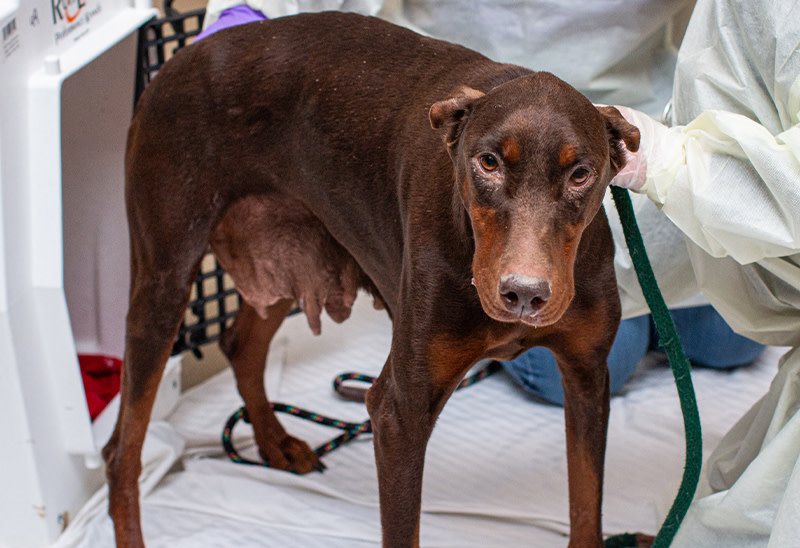Our Mission
Protect the welfare of animals, preserve the human-animal bond, and prevent the overpopulation of companion animals.
How Your Donations Help
- $335 spay/neuter 5 animals
- $37 Provide incoming vaccinations for 1 animal
- $80 provide care for one day for 5 animals
- $156 provide food for one day for 700 animals
Donate via Pledge
This database listing is not affiliated with or endorsed by Animal Rescue League Of Iowa. Donations to Pledgeling Foundation, a 501(c)(3) donor-advised fund, will be regranted to Animal Rescue League Of Iowa under the Terms of Service.
Our Impact
about 2 years ago — Iowa

The Animal Rescue League of Iowa (ARL) has become a full member of the International Association of Human-Animal Interaction Organizations (IAHAIO) - one of just 15 organizations in the U.S. to have full membership in the prestigious group. IAHAIO is the leading global network of organizations specializing in human-animal interactions and animal-assisted interventions. It develops standards of practice to enhance the health and welfare of people and animals across the world. The ARL is always actively growing and developing its programs to best serve the pets and people in its community. This new membership recognizes the organization's commitment to community through all of its programs, particularly the TheraPets and Pet Support Services programs. It brings the ARL to the cutting edge of human-animal interactions, and supports providing animal companionship to those who need it most.
10 months ago — Des Moines, Iowa

Each year, and the ARL sees an influx of kittens and mamas coming through our doors in the early springtime. Read on to find out more about kitten season and how you can help! Why does kitten season exist? Kitten season exists because there are a lot of male and female cats in the community that are not spayed or neutered. Spaying/neutering cats helps control the pet population and would reduce the number of kittens arriving at the ARL every spring through fall. A mother cat can give birth to 2-3 litters yearly, with 1-8 kittens per litter. That means one female cat may give birth to 32 kittens in a 16-month period. Now think about 10 cats each having 32 kittens. That's 320 kittens in a little over a year, and that’s a lot of meows! How does it affect us at the ARL? It takes thousands of hours and countless supplies to take care of all the kittens that arrive at the ARL each year. These tiny babies and their mamas need food, litter, bedding and toys, as well as vaccinations, spay/neuter surgeries, microchips and preventative care before they're ready for adoption! Thanks to our ARL Foster Network, these kittens don’t stay in the shelter long, but the same supplies are still used in the foster homes. What should I do if I find an orphaned kitten? Great question! You can find out here. How can I help during kitten season? SPAY/NEUTER: One of the best ways to help is by spaying and neutering. The ARL offers low-cost spay/neuter programs for those who qualify, and that includes programs for owned cats and community cats. Learn more about these programs here. VOLUNTEER: Join our Kitten Nursery volunteer team! Learn how you can help feed, care for, and support NICU kittens and pregnant and nursing cats. Sign up for a Volunteer Information Session today! FOSTER: Have extra room in your house to care for some kittens and/or moms with kittens? The ARL relies on people like you! Learn how to start changing lives as an ARL foster here! DONATE: We are always in need of items to care for these kittens. You can find all of our most-needed items on our Fetch List. You can also purchase items from our Amazon Wish List and Chewy Wish List and they'll be shipped directly to the ARL - so easy!
10 months ago — Washington County, Iowa

Our Animal Welfare & Response Team works tirelessly, partnering with law enforcement and other agencies across the state to respond when animals need us most. So when we received an urgent call for help with a situation involving dozens of dogs at a commercial breeder two hours away, we immediately began the hours of preparation needed for a rescue of that magnitude. On the property in Washington County, our team found 49 dogs and puppies living in unsanitary conditions in multiple buildings. Even more shocking, 17 deceased dogs, mostly puppies, were also found in various places around the property. A state-certified veterinarian at the scene determined all the surviving dogs and puppies needed to be removed for their own well-being, and that was our cue to begin moving the dogs to safety. One by one, we placed the dogs in clean kennels in our rescue trailer and helped load some that were headed to a partnering shelter – from mama dogs who’d had litters upon litters of puppies, to tiny pups whose lives were just beginning. In one particularly heartbreaking moment, we discovered a sick mama dog kenneled alone in cold room that was so dark we had to use our phone lights to see. We were told that all the pups in her most recent litter had died. Our hearts hurt for her as she walked quietly into the daylight to our rescue vehicle. Vulnerable animals like these dogs will always be counting on us, and we never know when the next call for help will come. The ARL is the only animal shelter in Iowa that has a dedicated rescue team capable of assisting with large-scale rescues in all four corners of the state. But our team can only keep doing this lifesaving work with your support. When you give today to support rescue efforts like these or choose to give monthly, you’ll ensure our rescue team can continue being there for innocent animals in Iowa, no matter the distance or how many animals are suffering. Please give your most generous gift today. Animals like these dogs need you now.
about 2 years ago — Dallas County, Iowa

When the ARL got the urgent call from the Dallas County Sheriff’s office to assist with the removal of 46 horses – many injured and thin, with little to no food and water – our rescue team quickly prepared for our largest horse rescue operation in years. When we arrived at the property, it was worse than we had imagined. We saw horses with open wounds. Ribs and hipbones were visible on many, and some were emaciated. The horses were so hungry, they pushed against the edges of the makeshift fencing, trying to reach anything edible. We saw one who was so hungry he had resorted to eating sharp thistles. When the ARL got the urgent call from the Dallas County Sheriff’s office to assist with the removal of 46 horses – many injured and thin, with little to no food and water – our rescue team quickly prepared for our largest horse rescue operation in years. When we arrived at the property, it was worse than we had imagined. We saw horses with open wounds. Ribs and hipbones were visible on many, and some were emaciated. The horses were so hungry, they pushed against the edges of the makeshift fencing, trying to reach anything edible. We saw one who was so hungry he had resorted to eating sharp thistles. Two of the horses with the most severe conditions – one with a gaping, infected neck wound and another suffering from severe emaciation – were taken to an equine veterinarian for immediate care. The emaciated horse in particular is lucky to be alive. These horses did not deserve this – no animal does. These horses are now safe at our Second Chance Ranch. They finally have clean enclosures, food and water, and they are finally receiving much-needed medical care under the supervision of equine veterinarians. But 46 horses – especially ones in this condition – are a lot to take on. It’s only because of you that we are able to continue to answer these calls for help and provide the care that suffering animals so desperately need.
almost 3 years ago — Keokuk County

When the ARL’s Mobile Rescue Team was contacted by Keokuk County Sheriff’s deputies to assist with a rescue, we arrived to find four horses – two of whom were in such terrible condition they were literally skin and bones. It was clear they needed immediate help. During the 1.5-hour drive back to Des Moines, one of the horses was so emaciated she collapsed. We stopped to help her, and when we were unable to get her on her feet, we took her to the equine veterinary hospital at Iowa State for emergency round-the-clock care. We don’t know how long the mare, Salty, will need to be hospitalized or if she will even survive. The next few days will be critical for her. The other horse in the worst condition, Betty, is not only emaciated, she is blind, with a condition that has caused her eyes to become red and inflamed. She is stable at our Second Chance Ranch as of right now and we’ve started her on a special refeeding program to help her regain weight safely. But she is definitely not out of the woods. All of the horses are also under socialized, meaning they will need behavioral rehabilitation as well. Thankfully, these horses are now safe, but we can’t do this alone. Please donate today to help provide care for Salty, Betty, Chelsea and Little Richard – and other animals like them. You’ll give them hope for a better life ahead – the life they’ve always deserved.